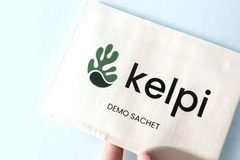AR Packaging joins PulPac Technology Pool to ignite dry molded fiber transition

11 Mar 2020 --- AR Packaging has joined the PulPac Technology Pool and aims to be first-to-market with 3D dry molded cellulose trays and cutlery for the food, on-the-go and foodservice sectors created using the patented technology. The molding of dry cellulose is recognized as an extremely fast and cost-effective process compared to traditional methods of molding cellulose and one that produces fully fiber-based alternatives to single-use plastics. AR Packaging is expected to contribute expertise in mass production and industrialization to the PulPac Technology Pool.
Pulpac-AR Packaging market assessments and smaller item series will hit the market this Spring, Linus Larsson, CEO of PulPac, tells PackagingInsights.
Invented by PulPac in 2016, dry molded fiber is protected with 38 patents and patent applications, covering more than 50 nations. The technology dry-molds pulp into solid packaging of any shape, including coffee cup lids, coffee pods and food trays.
Industrialization expertise
AR Packaging cites “a clear trend on the market to move away from plastic-based packaging without compromising on consumer convenience and product safety.” AR Packaging endeavors to be first on the market with dry molded fiber trays and cutlery and, in line with this strategy, the group has joined the PulPac Technology Pool to gain unique access to optimized processes for putting fully fiber-based and renewable single-use products on the market. The material in a PulPac product is generic pulp: a renewable, recyclable and biodegradable material.
The material in a PulPac product is generic pulp: a renewable, recyclable and biodegradable material.
“AR will bring significant expertise in multiple areas to the tech pool,” Larsson explains. “Most apparent is its expertise in mass production and industrialization, which encompasses everything from speed to excellent, safe, production output, but also a deep understanding of product specifications, legislative regulations and customer needs. These are all learnings that will help drive our innovation forward.”
“Our material know-how, converting expertise and market presence combined with PulPac’s technology will enable brand owners as well as agile first movers to take a giant leap forward in replacing plastic packaging and products in a fully sustainable and efficient manner,” adds Ralf Mack, Group Innovation Director at AR Packaging.
PulPac has placed all IP in a technology pool to accelerate a global reduction in single-use plastics. Technology pool members are charged with a royalty on sold goods to finance the continuing development of dry formed fiber packages.
“Overqualified” plastics out, fiber in
Larsson regards EU regulation as a big driver in the transition from plastic to fiber. He pinpoints the EU’s Single-Use Plastic Directive, which requires member states to ban the 10 most polluting single-use plastic items, including cotton bud sticks, cutlery, plates, straws and stirrers, by 2021. In January, Virginijus Sinkevičius, EU Commissioner-designate for Environment, Oceans and Fisheries, told German newspaper Die Welt that further bans on plastic packaging should be expected. EU regulations and negative consumer perceptions of single-use plastics are driving the fiber-in trend, notes Larsson.
EU regulations and negative consumer perceptions of single-use plastics are driving the fiber-in trend, notes Larsson.
“Some countries, including France, are taking an even harder stance than the EU and banning [single-use plastic] items this year,” notes Larsson.
“Also consumers are themselves pushing for this which makes the brands move accordingly. People are increasingly finding that plastics are “overqualified” for a lot of applications and also hurt our planet in a very unnecessary way since there are now economically and environmentally viable options available.”
“Together with AR, we are very proud to offer a solution that brings together local production and the utilization of a local resource. Full industrialization of PulPac is ongoing and the belief in the technology on a big scale is already there,” Larsson concludes.
PackagingInsights recently spoke in detail to Larsson about PulPac technology and its aims and ambitions.
By Joshua Poole










